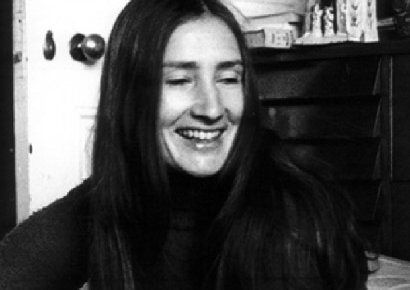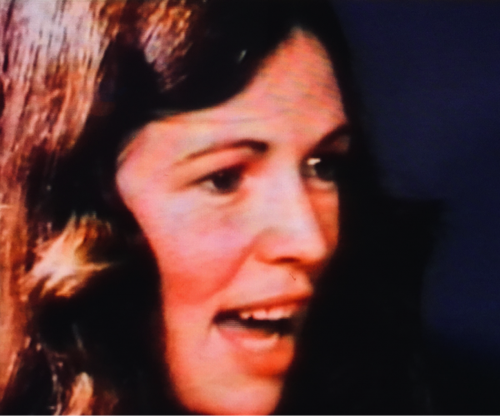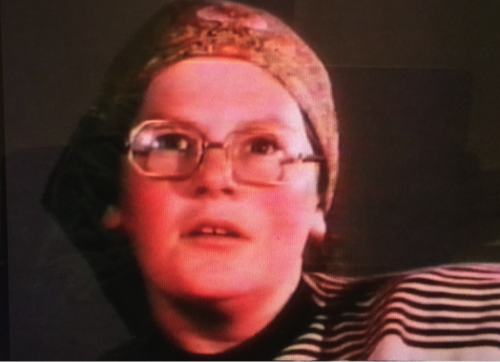
I first encountered I Want To Be Joan (1977) in the mid-1990s during a feminist film studies class at Victoria University. In Stephanie Beth’s 33-minute documentary, she interviews six Pākehā women of differing age and class in a talking head style. The women discuss marriage, parenting, motherhood, careers, education, family life and feminist consciousness raising. The interviews are intercut with paintings, poetry and music – all of which strongly evoke the 1960 and 70s. It’s amazing to hear and watch these women talk with such honesty, humility, hope and integrity about their life experiences and their hopes for the future.
At the time I was impressed by the subject matter and blown away by the raw honesty of the women interviewed. Although that first viewing was over 25 years ago, I still find myself absorbed, challenged and in awe of the affecting nature of this documentary. For that reason, I Want To Be Joan remains one of my favourite items in the collections of Ngā Taonga Sound & Vision.

Josepha Judd interviewed in I Want To Be Joan.
My next encounter with Joan was in 2000 when I started a job cataloguing at the New Zealand Film Archive (now Ngā Taonga). I was tasked with standardising catalogue entries for the film and television collections. The description I chose for Joan was an interview with Beth I found in the vertical files of the Archive’s Jonathan Dennis Library. The excerpt was from a 1979 interview in the iconic New Zealand feminist magazine ‘Broadsheet’ with Beth. In that interview she says ‘The purpose in making the film was to document the reality of women’s oppression. I want it to be used as a basis for discussion.’ (Beth, Stephanie, ‘Travelling with I Want To Be Joan‘, ‘Broadsheet’, no. 66, January 1979, pp.20-23).
Beth received funding from the United Women’s Convention to create a documentary based on interviews with women who attended the 1977 United Womens’ Conference in Christchurch. The mid-1970s in New Zealand was a time when the influence of second wave feminism were really beginning to be felt. Women were questioning their prescribed societal roles of wife and motherhood and challenging the lack of educational and work opportunities afforded to them.
After completing filming, Beth travelled around the country for one year presenting screenings of the documentary to various communities. After each screening, audience discussion sessions were held and the men in attendance were asked not to speak to allow the women present to be the dominant voice. What a radical idea that must have been, and what a radical idea it remains! One of the strong themes that comes through in these interviews is the women’s collective desire to have choices, options and control outside of the traditional roles of wives and mothers. How beautifully they articulate their desires and how prepared they seem to fight for them. It genuinely grieves me knowing that in the 43 years that have passed since this film was made, the battles that contemporary women face around control and choice in many respects remain unresolved. Except that instead of having little choice in career options or achievement outside of the home, modern women have little choice or opportunity for fulltime child-rearing and home-making roles. Neo-liberal politics and the cost of living do not permit it. I feel quite certain that this is not what the women in Joan argued so eloquently for.

Hilary Findlay interviewed in I Want To Be Joan.
My next encounter with Joan was in 2012 when I was fortunate to have the opportunity to curate a show called ‘Women & Weddings’ for the Auckland exhibition space of the Film Archive. My inspiration for this exhibition came from the large number of quite lovely home movies (known as Personal Records) of weddings in the collection; my observations at the time of the upsurge in popularity of marriage in young people; and the intense media and public interest in the impending nuptials of Prince William and Kate Middleton. The exhibition consisted of a large single screen display of a compilation of weddings spanning from the 1900s to the 2000s. As a supplementary event to the exhibition, I organised an evening screening of Joan along with another seminal New Zealand documentary, Some of My Best Friends are Women (1975) directed by Deirdre McCartin. Some of My Best Friends holds the honour of being New Zealand’s first feminist documentary but that, I think, is a topic for another blog post.
As part of the permissions process for screening activities at the time, I located Beth’s contact details. With a mix of nervousness and anticipation I contacted her to explain the exhibition and screening, obtain her blessing, and offer her an opportunity to contribute something should she wish to. To my great pleasure she replied promptly expressing both support and interest in the project. By coincidence she had just been through the process of digitally archiving her own works and she sent a supply of remastered and re-packaged DVD copies of Joan should there be any interest in public sales.
The screening of these two documentaries at our K Road exhibition space was welcomed by an audience bursting at the seams. There was a medley of people including regulars, a few well known fashion designers and historians, and a strong contingent of young activists who saw this as a rare opportunity to view and experience an important part of New Zealand’s social history. The screening was held to a standing room only audience and ended to rapturous applause and animated post screening discussion. It was truly gratifying to experience the joy and fire that was brought to this entirely new audience that evening.
For all these reasons and more, I Want To Be Joan is, and I suspect will always remain, one of my favourite films in the collection. If you haven’t already, get in touch and watch it!
Read a contemporary review of ‘I Want To Be Joan‘.
Read an essay by Stephanie Beth reflecting on her filmed interviews.
Hero image: Stephanie Beth.